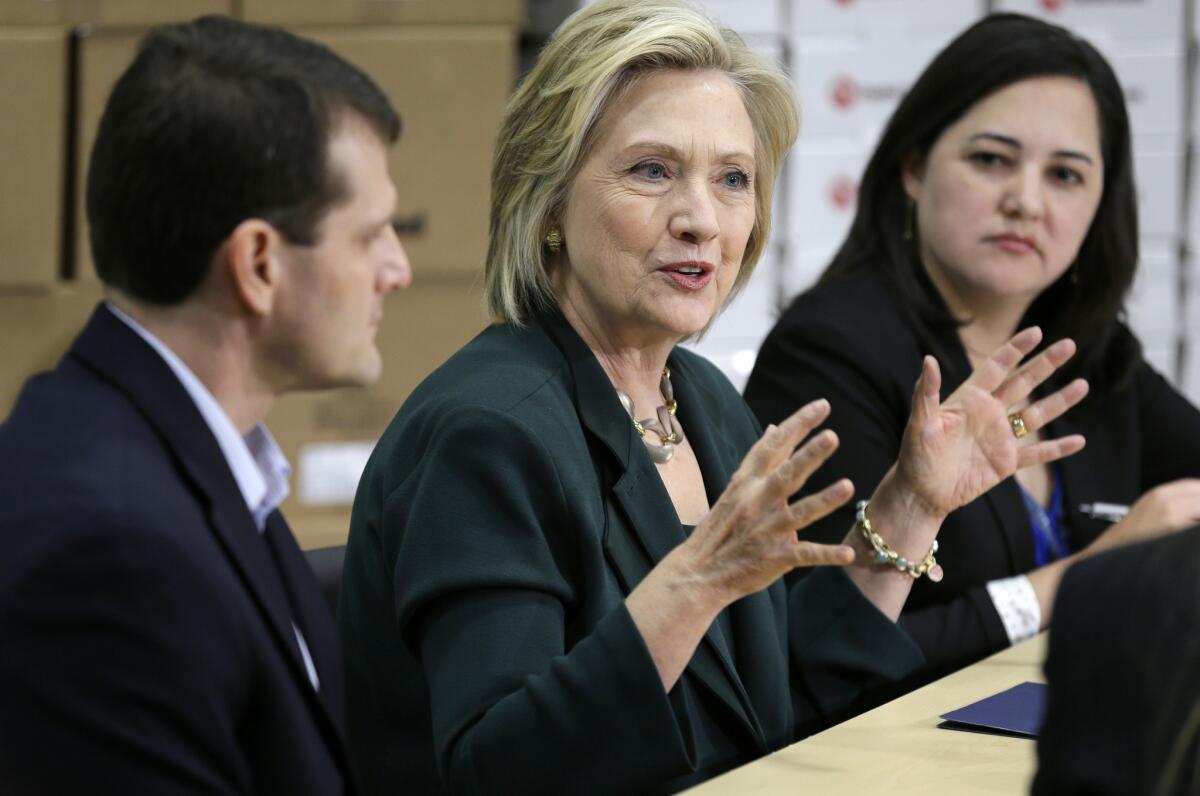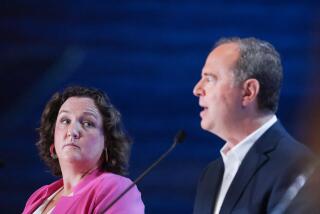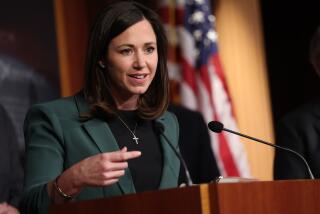Opinión: Hillary Clinton tees up an argument for opposing the TPP

You know that old joke about how to tell when a politician is lying?
Along those lines, here’s how to tell when politicians are looking for a way to oppose the Trans-Pacific Partnership without looking like a protectionist or a captive of organized labor: They say the magic words “currency manipulation.”
Witness former Secretary of State Hillary Clinton, whose husband persuaded Congress to approve the North American Free Trade Agreement back in 1993. For free-trade advocates, that was one of Bill Clinton’s biggest achievements in the White House.
On Friday, Hillary Clinton’s spokesman appeared to set a condition for her supporting the 12-nation TPP that is impossible to satisfy.
In a statement to the New York Times, Nick Merrill said Clinton would support the deal only if it improved the lot of U.S. workers and strengthened national security. That’s a brilliant bit of framing because no matter what’s in the deal, supporters will argue that it passes Clinton’s tests, opponents will argue that it fails, and both will be speculating.
Merrill went on, though, to give Clinton a sure argument against the deal. Among other things that Clinton will be “watching closely,” his statement said, she wants to see “what is being done to crack down on currency manipulation.”
Bingo! The deal is utterly silent on currency manipulation, despite the ministrations of some 60 senators and 230 House members. Lawmakers have been calling for the administration to make currency manipulation part of TPP at least since 2013, to no avail. And if the administration wasn’t willing to do it early in the talks, there’s virtually no chance it will do so now, with the negotiations wrapping up.
The many signatories to those letters include several lawmakers who’ve been free-traders in the past, as well as the folks who wouldn’t support the TPP under any circumstances. That’s because opposing currency manipulation isn’t the same as trying to protect U.S. companies and workers from legitimately lower-cost foreign competitors. It comes from the same desire for a level playing field and enforceable rules that motivates proponents of free-trade deals.
In fact, you’d be hard pressed to find anyone on this side of the Pacific likes the concept of currency manipulation. Numerous studies blame such practices by China and other countries for billions of dollars in damage to the U.S. economy. U.S. automakers are particularly upset about alleged manipulation by Asian governments to boost their auto exports and keep U.S.-made vehicles out of their markets.
But just because you want to stamp out that sort of cheating, that doesn’t mean you try to do it through regional trade pacts.
That’s because it’s really, really hard to come up with a way to identify and measure currency manipulation. Federal Reserve Board Chairwoman Janet Yellen has warned lawmakers that legitimate efforts to stimulate the economy through such tools as quantitative easing can look like currency manipulation. In fact, some of the United States’ trading partners made just that complaint back when the Fed was the only central bank doing quantitative easing, which led the dollar to lose value against foreign banknotes.
Not coincidentally, exports have been one of the few bright spots in the U.S. economy since the recession.
You might argue that Clinton was just keeping her options open. There are plenty of voices out there arguing against including currency manipulation in the TPP, just as there are plenty on the other side.
But by making currency manipulation the first item on her BOLO list, Clinton’s campaign is sending a not-so-veiled signal to the anti-TPP crowd that she’s ready to join the fight. Otherwise, why bring it up when we already know negotiators aren’t doing a thing about the problem?
Follow Healey’s intermittent Twitter feed: @jcahealey
More to Read
A cure for the common opinion
Get thought-provoking perspectives with our weekly newsletter.
You may occasionally receive promotional content from the Los Angeles Times.







